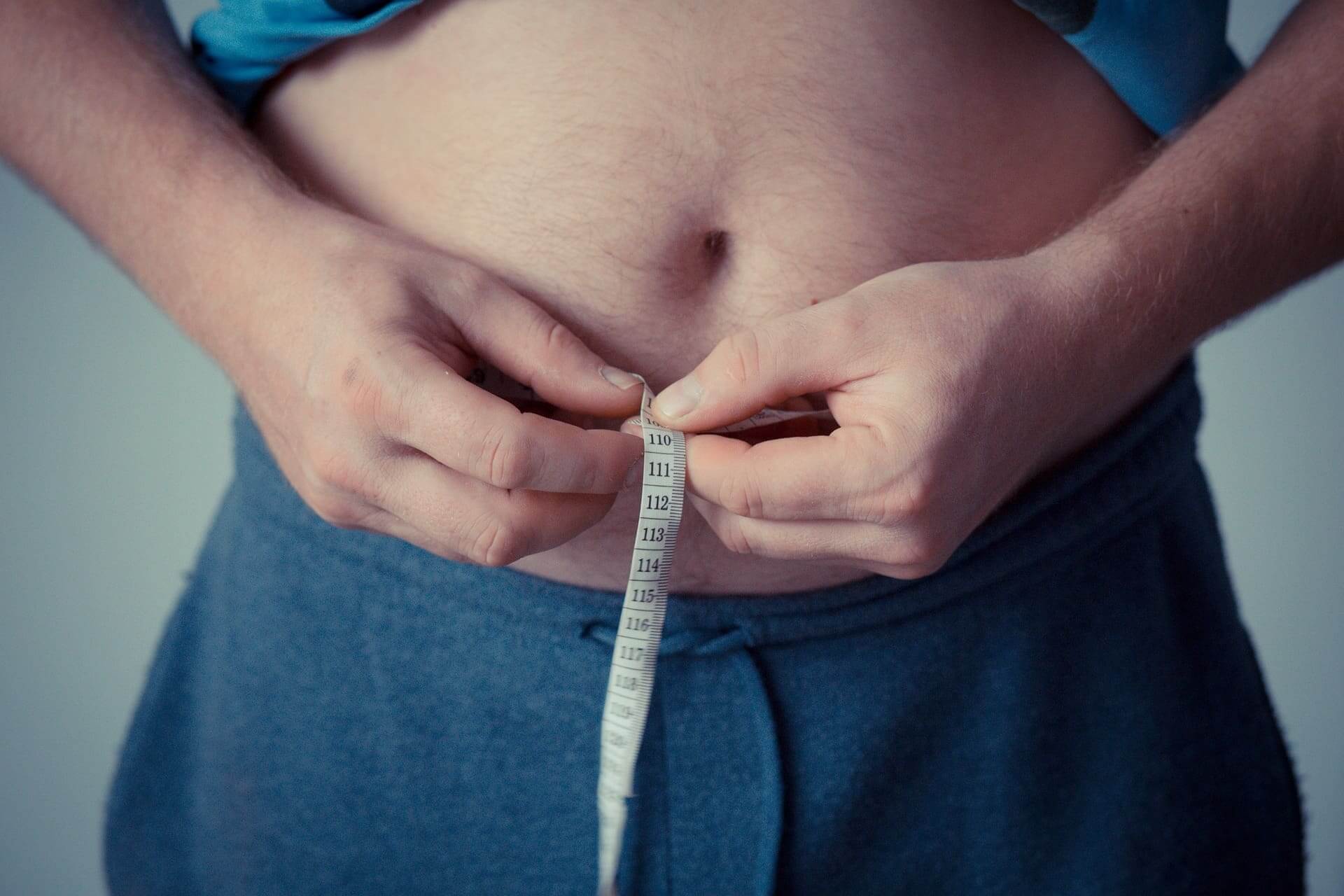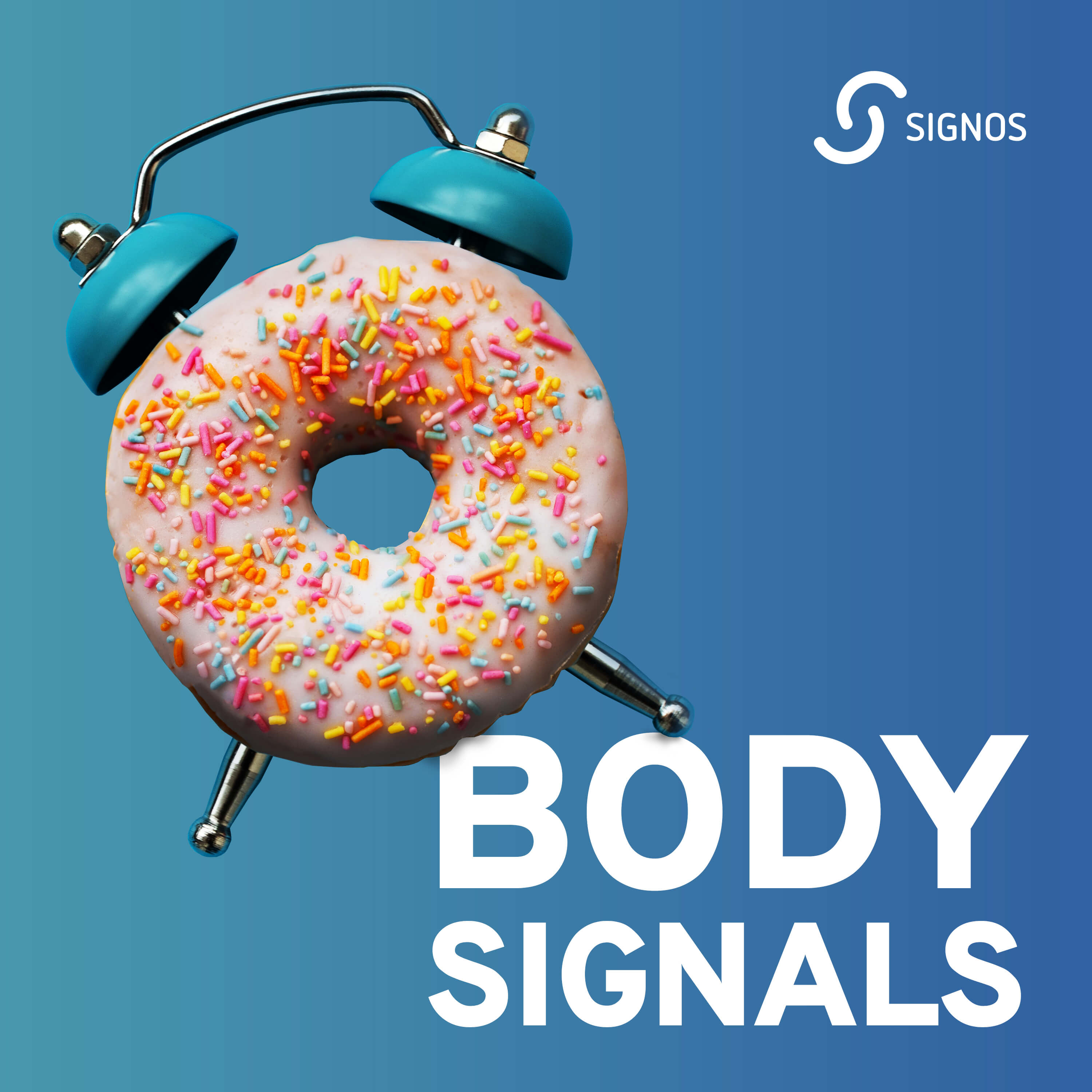Many of the premenstrual symptoms you associate with that time of the month, such as depression, irritability, bloating, and food cravings, are caused by hormonal fluctuations. It’s helpful to understand how your period affects your blood sugar and devise strategies to avoid blood sugar spikes and drops.
{{mid-cta}}
Do Periods Raise Blood Sugar or Lower It?
Whether periods raise or lower blood sugar (glucose) depends on the menstrual cycle phase. Hormone levels and insulin sensitivity change daily and sometimes throughout the day. While there may be trends in insulin sensitivity and blood glucose levels, there are no hard and fast guidelines.
A typical menstrual cycle lasts 28 days, starting with the first day of your period, with ovulation at approximately day 14 and menstruation (period) at days 1–5, unless conception occurs. Menstrual cycles vary from 21 to 35 days from month to month. Most variations in length occur in the follicular phase of the menstrual cycle.
Four Key Hormones Regulate the Menstrual Cycle:
- Luteinizing hormone (LH) surges trigger an egg’s release from the ovary.
- Follicle-stimulating hormone (FSH) matures the ovarian follicle that releases the egg.
- Estrogen thickens the uterine lining.
- Progesterone prepares the uterus for a fertilized egg and supports early pregnancy.
The menstrual cycle can be divided into different phases, depending on which hormone is dominant. In each phase, your hormone levels and blood sugar may trend up or down.
Key Phases of the Menstrual Cycle:
- Menses Phase, Days 1–5: Menses is when the inner lining of the uterus is shed. This phase typically lasts five days but can last 2 to 7 days. Progesterone and estrogen levels are low.
- Follicular Phase, Days 6-14: After the uterine lining is shed, specialized cells in the ovary, called the granulosa and theca cells, release estrogen. Rising estrogen levels stimulate the uterus to begin rebuilding to prepare for a potentially fertilized egg implanting in the uterus. Estrogen levels are rising, and progesterone levels remain low.
- Ovulation Days 11-14: A burst of LH in response to increasing estrogen causes the egg to be released from the dominant follicle, travel down the fallopian tube, and, if fertilized, implant in the uterus. Estrogen levels are high, and progesterone levels remain low. FSH and LH peak right before ovulation. Higher FSH seems to improve insulin sensitivity.1, 2 Higher LH reduces insulin sensitivity. You may notice higher blood sugars around ovulation from decreased insulin sensitivity due to spiking LH.
- Luteal Phase Days 15-28: Once ovulation occurs, the dominant follicle becomes an endocrine organ called a corpus luteum and begins producing progesterone. Initially, there is a decline in estrogen followed by a second peak just before menses.3 When the corpus luteum breaks down, progesterone levels decline. This decline triggers the shedding of the uterine lining and menses. Many women notice their blood sugar increasing right before their period starts. This is because of higher progesterone levels relative to estrogen.
During the luteal phase of your menstrual cycle, when progesterone levels are at their highest, you will probably notice your highest blood sugars. This is because higher progesterone levels are associated with reduced insulin sensitivity and worse glucose control.
Your blood sugar may spike more easily during the luteal phase, even if you follow your typical diet and exercise plan. You may also notice an increase in blood glucose right before your period starts, with a decrease within 48 to 72 hours.
Premenopausal women have better glucose control and a lower incidence of type 2 diabetes than men or postmenopausal women, suggesting that increased estrogen is protective. Lower estrogen in postmenopausal women increases the risk of type 2 diabetes and insulin resistance. Estrogen reduces blood glucose, possibly by increasing glucose uptake into muscle.4 Estrogen may also suppress glucose production in the liver.5 When estrogen levels are high, expect higher insulin sensitivity.
Tracking your blood sugar is the only way to gain an understanding of whether hormone fluctuations may be contributing to blood sugar changes. See if you notice an increase in your blood sugar around ovulation and throughout the latter half of the luteal phase of your menstrual cycle. Each person responds differently to changes in estrogen and progesterone.
Symptoms You Might Notice as Hormones Affect Blood Sugar During Your Cycle
Your blood sugar fluctuates throughout your menstrual cycle, from day to day, hour to hour, and even minute to minute. Stress, diet, sleep habits, exercise, infections, and medications are just some of the factors that can affect your blood sugar.
Track your menstrual-related symptoms to see if they might be related to changes in your blood sugar.
Typical Symptoms of Low Blood Sugar Include:
- Irritability
- Shaking
- Sweating
- Anxiety
- Dizziness
- Extreme hunger
- Muscle weakness
Typical Symptoms of High Blood Sugar Include:
- Increased thirst
- More frequent urination
- Fatigue
- Drowsiness
- Nausea
- Blurred vision
- Stomach pain
Does Premenstrual Syndrome (PMS) Affect Blood Sugar (and Vice Versa)?
Just before your period, premenstrual symptoms may flare up when progesterone and estrogen levels peak and then begin to decline. You may experience increased appetite and cravings from high progesterone and binge eating, which may involve lower serotonin levels (a brain chemical that regulates mood).6, 7
Low serotonin can cause irritability, fatigue, depression, and impatience, all symptoms associated with PMS. This suggests that women may actually be self-medicating their serotonin dip by increasing their carbohydrate intake.8
In one study, women with PMS had increased consumption of both simple and complex carbohydrates, with a 24% increase in carbohydrates during meals and a 43% increase when snacking. Carbohydrates increase the ratio of tryptophan to large amino acids, the precursor to serotonin.7
What exactly causes PMS is not clear. In some studies, women who experienced PMS had lower levels of blood glucose than women without symptoms, suggesting that low glucose levels may contribute to PMS symptoms.9, 10 In another study, women with PMS had higher glucose levels during the luteal phase than women who did not.11
Most studies confirm that appetite and cravings are higher right before your periods. Therefore, it seems more likely that PMS symptoms are in response to changing serotonin and other brain chemicals rather than changes in blood sugar.
Do Periods Affect Blood Glucose Differently for People With or Without Diabetes?
Diabetes can be caused by a lack of insulin or an abnormal insulin response. Some studies suggest that women are more sensitive to insulin levels in the follicular phase of their menstrual cycle than during the luteal phase.12 Other studies have not found a difference.13
Researchers used continuous glucose monitoring (CGM) to study glucose fluctuations in patients with type 1 diabetes and found higher glucose levels in the luteal phase. The difference was significant. They recommend the two phases of the menstrual cycle be considered when planning insulin therapy.14
Track your blood glucose throughout your cycle. Look for blood glucose peaks around ovulation and right before your period. If you notice a trend, share it with your doctor. You may need a different insulin schedule for the two phases of your menstrual cycle.
Another factor to consider if you have diabetes and PMS is whether you are consuming more calories, especially carbohydrates, in the seven to ten days leading up to your period and how this may affect your blood glucose.
More research is needed to determine the relationship between phases of the menstrual cycle and blood sugar. In the meantime, tracking your blood sugar, your symptoms, and your diet is the best way to determine whether changes in hormone levels affect your insulin sensitivity and blood sugar.
How Blood Glucose Levels Can Affect the Menstrual Cycle

For most people without diabetes, blood glucose levels will not affect their menstrual cycle.
Both type 1 and type 2 diabetes can cause changes in hormone levels, which can impact the length of your menstrual cycle and menstrual flow. Diabetes is associated with an increased risk of the following:15, 16, 17
- Later onset of menarche, especially in people who are underweight
- Menstrual cycle irregularities
- Earlier menopause
- Anovulatory cycles
Menstrual irregularities are extremely common. You may occasionally miss a period, have shorter-than-normal cycles, mid-cycle bleeding, or unusually heavy flow. When these changes occur regularly or are accompanied by other symptoms, it's time to see your doctor. The cause may be as simple as weight changes, excessive exercise, or increased stress, but it is important to check for conditions such as polycystic ovary syndrome (PCOS), hormone abnormalities, and pregnancy.
Do People With PCOS Have the Same Changes in Blood Sugar?
Polycystic ovary syndrome (PCOS) is a common endocrine disorder that can increase the risk of obesity and insulin resistance. PCOS is defined by three symptoms: irregular periods, excess androgens, and polycystic ovaries.
Other common symptoms of PCOS include:
- Excessive hair growth on the face, chest, abdomen, and upper thighs
- Severe acne
- Patches of thickened, velvety, darkened skin
Increased LH, decreased FSH, and increased LH to FSH ratio are common in PCOS. These hormone changes are associated with increased insulin resistance and obesity.1 However, more research is needed to determine whether it is changes in FSH and LH that cause abnormal glucose levels and a propensity for people with PCOS to develop type 2 diabetes.
Women with PCOS are commonly prescribed oral contraceptives to regulate their periods. Both oral contraceptives and insulin resistance associated with PCOS can cause increased blood glucose in the luteal phase. Tracking your blood glucose using a CGM can help determine whether blood glucose fluctuations have a pattern.
Can Hormonal Contraceptives Affect Blood Sugar?
Hormonal contraceptives contain both estrogen and progesterone or progesterone alone. The ratio of estrogen to progesterone may vary. Estrogen-containing hormonal contraceptives are more likely to affect insulin sensitivity than those containing progesterone alone.18 The doses of estrogen and progesterone are much lower now than in hormonal contraceptives used 20 to 30 years ago.
Hormonal contraceptives are usually associated with lower insulin sensitivity and lower estrogen levels. In one study, contraceptives led to a 30% to 40% reduction in insulin sensitivity.12 Other studies have found no significant change in blood glucose or insulin sensitivity when taking hormonal contraceptives.18
Type 2 Diabetes and Endometrial Cancer
Endometrial cancer is a type of cancer that begins with cell changes in the inner lining of the uterus (the endometrium). Type 2 diabetes is a risk factor for endometrial cancer, with some research suggesting people with diabetes are twice as likely to develop endometrial cancer than those without.19
The increased risk may be associated with higher blood sugar levels that could support the growth of the cancer cells, but researchers still don’t completely understand the relationship. There is also a higher risk of endometrial cancer for people with PCOS and obesity, both associated with insulin resistance and blood sugar dysregulation that could play a role.20
<p class="pro-tip"><strong>Also Read: </strong><a href=”period-brain-fog">Period Brain Fog: Your Menstrual Cycles and Cognitive Function</a>.</p>
How Your Menstrual Cycle and Associated Blood Glucose Changes Can Affect Weight Loss Efforts
Insulin resistance can increase your tendency to gain weight, which can affect your menstrual cycle. Fat cells produce estrogen. Excessive estrogen can cause abnormal bleeding and irregular periods.
Low numbers of fat cells, being underweight, or having an eating disorder can cause missed periods and may even suppress the hypothalamus from producing sex hormones that trigger ovulation.
Weight gain can trigger changes in your menstrual cycle, but can hormone changes in your menstrual cycle affect your weight? Estrogen suppresses appetite, while progesterone stimulates it. Progesterone also increases cravings.20, 21, 6 You may notice an increase in your appetite and cravings for carbohydrates in the second half of your menstrual cycle when progesterone levels are high, which can also affect blood sugar control.7
Estrogen increases the release of the fullness hormone cholecystokinin (CCK) while attenuating the effect of the hunger hormone ghrelin.22 As estrogen levels decline, you may notice more hunger, increased bloating, and cravings for salt. Monitor your salt intake, drink plenty of water, and choose a healthy diet to help minimize cravings.
Things You Can Do to Manage Blood Sugar Throughout Your Menstrual Cycle

You can take several steps to help manage your blood sugar throughout your menstrual cycle:
- Track Your Cycle: Each person’s average cycle length is different, and there is also some variability in cycle length from month to month. Tracking your menses for three to six months can help you identify the phases of your menstrual cycle. Track your period length and any PMS or other symptoms you notice.
- Track Your Blood Sugar: Use your CGM and the Signos app to track your blood sugar. Map it onto your cycle pattern to identify trends. You will probably notice an increase in insulin resistance and blood glucose around the time you ovulate and right before your period.
- Track How Your Menstrual Cycle May Affect You: Track your mood, PMS symptoms, fatigue levels, and weight to see if fluctuations in hormone levels throughout your menstrual cycle cause these signs and symptoms.
- Minimize Cravings Associated With PMS: To minimize cravings and maintain more stable blood glucose levels, avoid alcohol, caffeine, chocolate, and foods high in simple carbohydrates or high glycemic carbs. Instead, try to eat regular meals and choose healthy fats and complex carbohydrates.
- Exercise: Regular exercise can help with insulin sensitivity and, therefore, help moderate your blood sugar. It can also decrease stress and improve PMS symptoms. Any physical activity can help!
- Adjust Your Insulin Dosing: This tip is specifically for people living with diabetes who take insulin. If you notice your blood sugar changes during ovulation or right before your period, speak with your diabetes care team to discuss a plan to adjust your insulin doses as needed.
Are There Signs You Should Talk to a Doctor About Your Hormones and Blood Glucose Levels?
Yes! Talk to your doctor if you experience wide fluctuations in your blood sugar. The earlier a diagnosis of type 2 diabetes or PCOS is made, the more quickly you can bring your blood sugar levels under control and reduce the women’s health risks associated with high blood pressure, cardiovascular disease, or obesity. Many diseases and medical conditions can cause symptoms that overlap with diabetes. Talk to your doctor about any symptoms that are persistent or concerning.
If you have diabetes and are having difficulty controlling your blood sugar in any phase of your menstrual cycle, contact your doctor to see what diabetes management steps you should take. If you have symptoms of PMS, such as depression or anxiety, that affect your daily life, talk to your doctor about potential treatment options.
Can a Continuous Glucose Monitor (CGM) and the Signos App Be Helpful for Stabilizing Blood Sugar Throughout the Menstrual Cycle?
Absolutely! A CGM paired with the Signos app can provide the data you need to understand how your periods affect your blood sugar. Estrogen and progesterone affect glucose sensitivity, but there is a lot of variability in hormone levels throughout your menstrual cycle, which traditionally has made it very difficult to study the effects of hormones on glucose sensitivity and blood glucose levels.
Some studies show significant variation between blood glucose levels and insulin sensitivity in the follicular and luteal phases. Some studies show variation only in women with PMS, and others do not show any variation in glucose levels, insulin sensitivity, or carbohydrate consumption throughout the menstrual cycle.23
Using a CGM and the Signos app, you can track your blood sugar throughout your menstrual cycle and identify whether estrogen and progesterone shifts and PMS symptoms affect your blood glucose.
<p class="pro-tip"><strong>Learn More: </strong><a href="weight-gain-during-period">Why Do We Gain Weight During Periods? What You Should Know</a>.</p>
- Item 1
- Item 2
- item 3
Topics discussed in this article:
References
- Wang, N., Kuang, L., Han, B., Li, Q., Chen, Y., Zhu, C., Chen, Y., Xia, F., Cang, Z., Zhu, C., Lu, M., Meng, Y., Guo, H., Chen, C., Lin, D., & Lu, Y. (2016). Follicle-stimulating hormone associates with prediabetes and diabetes in postmenopausal women. Acta diabetologica, 53(2), 227–236. https://doi.org/10.1007/s00592-015-0769-1
- Stefanska, A., Cembrowska, P., Kubacka, J., Kuligowska-Prusinska, M., & Sypniewska, G. (2019). Gonadotropins and Their Association with the Risk of Prediabetes and Type 2 Diabetes in Middle-Aged Postmenopausal Women. Disease markers, 2019, 2384069. https://doi.org/10.1155/2019/2384069
- Reed BG, Carr BR. The Normal Menstrual Cycle and the Control of Ovulation. [Updated 2018 Aug 5]. In: Feingold KR, Anawalt B, Boyce A, et al., editors. Endotext [Internet]. South Dartmouth (MA): MDText.com, Inc.; 2000-. Available from: https://www.ncbi.nlm.nih.gov/books/NBK279054/
- Moreno, M., Ordoñez, P., Alonso, A., Díaz, F., Tolivia, J., & González, C. (2010). Chronic 17beta-estradiol treatment improves skeletal muscle insulin signaling pathway components in insulin resistance associated with aging. Age (Dordrecht, Netherlands), 32(1), 1–13. https://doi.org/10.1007/s11357-009-9095-2
- Yan, H., Yang, W., Zhou, F., Li, X., Pan, Q., Shen, Z., Han, G., Newell-Fugate, A., Tian, Y., Majeti, R., Liu, W., Xu, Y., Wu, C., Allred, K., Allred, C., Sun, Y., & Guo, S. (2019). Estrogen Improves Insulin Sensitivity and Suppresses Gluconeogenesis via the Transcription Factor Foxo1. Diabetes, 68(2), 291–304. https://doi.org/10.2337/db18-0638
- Gorczyca, A. M., Sjaarda, L. A., Mitchell, E. M., Perkins, N. J., Schliep, K. C., Wactawski-Wende, J., & Mumford, S. L. (2016). Changes in macronutrient, micronutrient, and food group intakes throughout the menstrual cycle in healthy, premenopausal women. European journal of nutrition, 55(3), 1181–1188. https://doi.org/10.1007/s00394-015-0931-0
- Cross, G. B., Marley, J., Miles, H., & Willson, K. (2001). Changes in nutrient intake during the menstrual cycle of overweight women with premenstrual syndrome. The British journal of nutrition, 85(4), 475–482. https://doi.org/10.1079/bjn2000283
- Wurtman, R.J. and Wurtman, J.J. (1995), Brain Serotonin, Carbohydrate-Craving, Obesity and Depression. Obesity Research, 3: 477S-480S. https://doi.org/10.1002/j.1550-8528.1995.tb00215.x
- Trout, K. K., Basel-Brown, L., Rickels, M. R., Schutta, M. H., Petrova, M., Freeman, E. W., Tkacs, N. C., & Teff, K. L. (2008). Insulin sensitivity, food intake, and cravings with premenstrual syndrome: a pilot study. Journal of women's health (2002), 17(4), 657–665. https://doi.org/10.1089/jwh.2007.0594
- Zarei, S., Mosalanejad, L., & Ghobadifar, M. A. (2013). Blood glucose levels, insulin concentrations, and insulin resistance in healthy women and women with premenstrual syndrome: a comparative study. Clinical and experimental reproductive medicine, 40(2), 76–82. https://doi.org/10.5653/cerm.2013.40.2.76
- Dey, S., Dasgupta, D., and Roy, S. (2019). Blood Glucose Levels at Two Different Phases of Menstrual Cycle: A Study on a Group of Bengali-speaking Hindu Ethnic Populations of West Bengal, India. The Oriental Anthropologist. 19(1):55-63. https://doi.org/10.1177/0972558X19835371
- Varlamov, O., Bethea, C. L., & Roberts, C. T., Jr (2015). Sex-specific differences in lipid and glucose metabolism. Frontiers in endocrinology, 5, 241. https://doi.org/10.3389/fendo.2014.00241
- Bingley, C. A., Gitau, R., & Lovegrove, J. A. (2008). Impact of menstrual cycle phase on insulin sensitivity measures and fasting lipids. Hormone and metabolic research = Hormon- und Stoffwechselforschung = Hormones et metabolisme, 40(12), 901–906. https://doi.org/10.1055/s-0028-1082081
- Barata, D. S., Adan, L. F., Netto, E. M., & Ramalho, A. C. (2013). The effect of the menstrual cycle on glucose control in women with type 1 diabetes evaluated using a continuous glucose monitoring system. Diabetes care, 36(5), e70. https://doi.org/10.2337/dc12-2248
- Schweiger, B. M., Snell-Bergeon, J. K., Roman, R., McFann, K., & Klingensmith, G. J. (2011). Menarche delay and menstrual irregularities persist in adolescents with type 1 diabetes. Reproductive biology and endocrinology : RB&E, 9, 61. https://doi.org/10.1186/1477-7827-9-61
- Yazdkhasti, M., Tourzani, Z. M., Roozbeh, N., Hasanpour, V., Saeieh, S. E., & Abdi, F. (2019). The association between diabetes and age at the onset of menopause: a systematic review protocol. Systematic reviews, 8(1), 80. https://doi.org/10.1186/s13643-019-0989-5
- Strotmeyer, E. S., Steenkiste, A. R., Foley, T. P., Jr, Berga, S. L., & Dorman, J. S. (2003). Menstrual cycle differences between women with type 1 diabetes and women without diabetes. Diabetes care, 26(4), 1016–1021. https://doi.org/10.2337/diacare.26.4.1016
- Cortés, M. E., & Alfaro, A. A. (2014). The effects of hormonal contraceptives on glycemic regulation. The Linacre quarterly, 81(3), 209–218. https://doi.org/10.1179/2050854914Y.0000000023
- Hirschberg A. L. (2012). Sex hormones, appetite and eating behaviour in women. Maturitas, 71(3), 248–256. https://doi.org/10.1016/j.maturitas.2011.12.016
- Chopra, S., Sharma, K. A., Ranjan, P., Malhotra, A., Vikram, N. K., & Kumari, A. (2019). Weight Management Module for Perimenopausal Women: A Practical Guide for Gynecologists. Journal of mid-life health, 10(4), 165–172. https://doi.org/10.4103/jmh.JMH_155_19
































